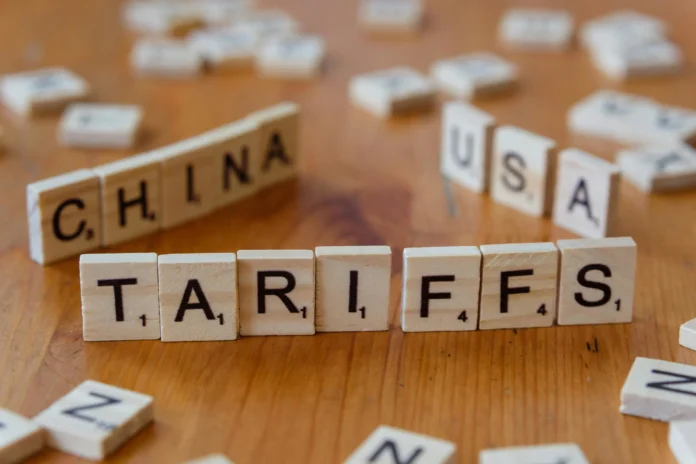US Imposes 104% Tariff on Chinese Imports as Beijing Refuses to Back Down
In a dramatic escalation of the ongoing US-China trade war, the United States has implemented a sweeping 104% tariff on Chinese imports, intensifying pressure on Beijing over its trade practices. The move has sparked global concern and provoked a sharp response from the Chinese government, which has vowed to “fight to the end.”
The Biden administration cited long-standing issues, including intellectual property theft, industrial subsidies, and restricted market access, as justification for the new tariffs. U.S. officials argue that these practices give Chinese companies an unfair edge, hurting American industries and workers.
Washington Draws the Line
“We can no longer tolerate unfair trade practices that harm American competitiveness,” said U.S. Treasury Secretary Scott Bessent. He described China’s retaliatory threats as a “big mistake,” asserting that the U.S. will stand firm in protecting its economic interests.
The new tariffs cover a wide range of Chinese goods, from electric vehicles and industrial metals to consumer electronics and solar panels. Analysts expect this action to raise prices on imported goods and strain already fragile supply chains.
Beijing Retaliates with New Tariffs
In response, China has announced retaliatory tariffs on $34 billion worth of American products, targeting sectors such as agriculture, energy, and automotive. The Chinese Ministry of Commerce condemned the U.S. tariffs, claiming they violate World Trade Organization (WTO) rules and threaten global trade stability.
“China will take all necessary measures to safeguard its interests,” a ministry spokesperson said, signaling a prolonged standoff between the world’s two largest economies.
Global Markets on Edge
Financial markets around the world reacted with volatility following the announcement. While some indexes have shown signs of recovery amid optimism for potential negotiations, uncertainty looms large. Investors are concerned about the broader implications for global trade and economic growth.
“The economic fallout of a sustained trade war could be severe,” said Dr. Emily Han, an international trade analyst. “Rising costs, disrupted supply chains, and decreased consumer confidence are just the beginning.”
Trade War Could Hit Consumers and Businesses Alike
Economists warn that the escalating tariff conflict could hit both American and Chinese consumers, increasing prices on everyday goods and disrupting business operations. U.S. farmers and manufacturers are particularly vulnerable to Chinese retaliatory measures.
With neither side showing signs of backing down, the possibility of a prolonged economic conflict remains high. Analysts suggest that the standoff could impact global GDP, hinder post-pandemic recovery, and shift supply chain strategies worldwide.
What Comes Next?
As the US-China tariff war continues to unfold, all eyes are on future diplomatic moves. Whether the tensions will lead to renewed negotiations or further economic retaliation remains to be seen. For now, businesses, investors, and consumers across the globe are bracing for impact.



